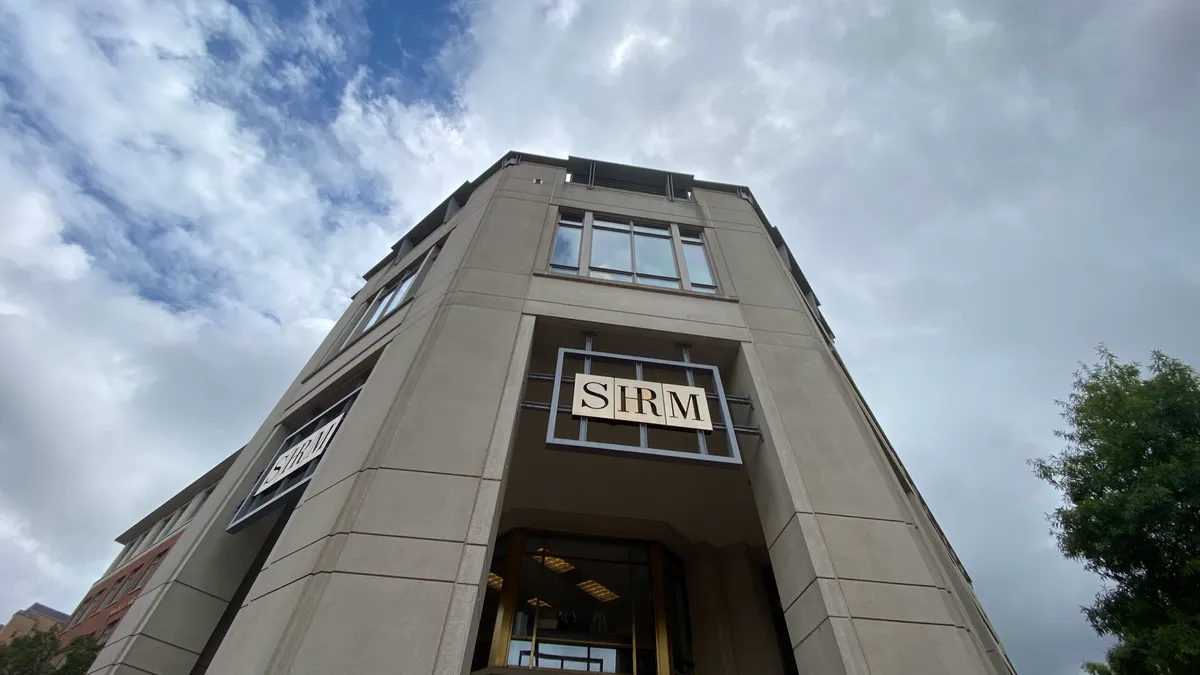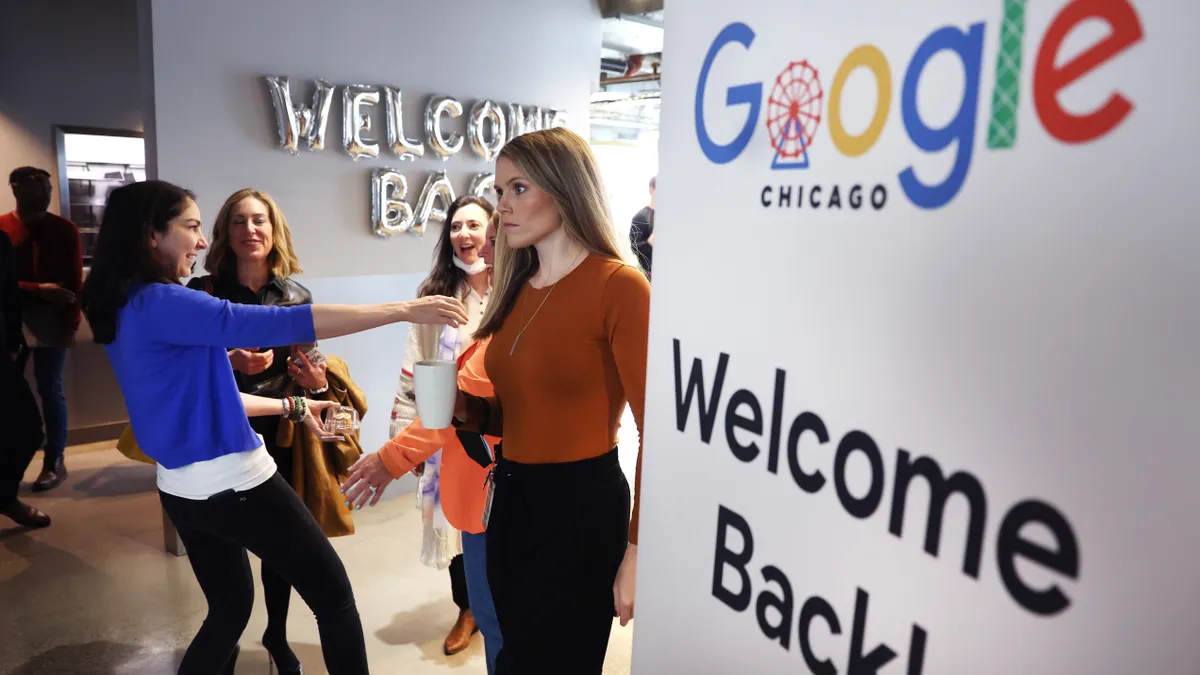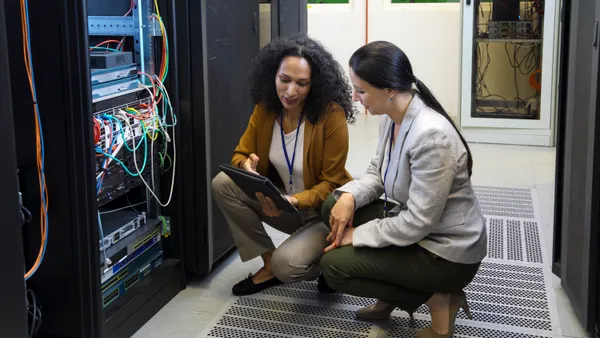Dive Brief:
- Millennials may be highly connected with their peers on the digital front, but when it comes to institutions and employers, any strong connection falls away, according to a recent Gallup survey.
- Gallup's report, How Millennials Want to Work and Live, found that Americans born between 1980 and 1996 are, of course, very savvy with technology — smartphones, social media, text messages and emails. For example, they are 11 times more likely than older generations to use Twitter. But their fondness for traditional political institutions and employers are significantly lower when compared to older generations.
- Political differences are especially dramatic, as the appeal of major political parties seems to matter very little to millennials. A plurality (44%) describe themselves as politically independent, with only 28% identifying as Democrats and 19% as Republicans. Employers don't fare much better, with 21% of millennials reporting they have changed jobs within the past year. 60% of millennials are open to different job opportunities and only 50% plan to be with their company a year from now, Gallup reports.
Dive Insight:
Most observers and employers may not be shocked by the Gallup findings. If nothing else, they fortify the need for HR leaders to deploy proven strategies for engaging millennial employees and winning their commitment, especially in areas such as learning and career development. If not, millennial engagement at work will continue to be tepid at best, fueling younger workers' ongoing job-hopping tendencies.
Surveys and other research show that one of the best ways for employers to connect with millennials is by clearly communicating both the company mission and key differentiators from other employers. For instance, Gallup found that if that goal is met, 71% of millennials say that they plan to stay with their employer for at least another year, a 42% improvement compared with the average response. Some employers have found that listening to their younger workers, and changing accordingly, has led to successful attempts at keeping these workers in the fold.
















